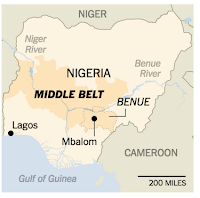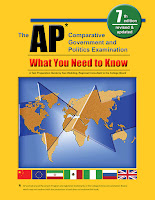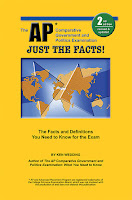Cleavages and conflict
This is a great article that identifies cleavages and causes of conflict. Where are the conflicts happening? What are the causes? What factors limiting the government?
Nigeria’s Farmers and Herders Fight a Deadly Battle for Scarce Resources
Teaching Comparative blog entries are indexed. Use the search box to look for country names or concept labels attached to each entry.
What You Need to Know 7th edition is ready to help.
Order the book HERE
Amazon's customers gave this book a 4-star rating.
Nigeria’s Farmers and Herders Fight a Deadly Battle for Scarce Resources
Clashes between armed herdsmen and farmers in Nigeria are escalating to increasingly violent episodes as a battle for scarce resources stirs long-held tensions over religion and ethnicity…
On Friday and Saturday night dozens of suspected armed herders, who are Muslim and of the Fulani ethnicity, descended from surrounding hills into several villages, opening fire, burning homes and shooting to death some people, most of them Christian and of the Berom ethnicity, as they slept.
The killings immediately triggered reprisals as young people from the villages set up road blocks and killed anyone suspected of being Muslim and Fulani. One police commissioner in the area said at least five people died at checkpoints.
Conflict between herders and farmers over natural resources has a long history throughout sub-Saharan Africa…
The issue has particularly polarized Nigeria, especially in the Middle Belt, the agrarian bread basket that stretches across the country.
-New York Times
As the nation’s population has soared and available grazing land has shrunk, farmers have settled on land that herders have used for hundreds of years as grazing routes to move their cattle seasonally.
Many parts of the country have been affected by the conflicts, including in the north, where Muslims constitute most of the farmers. But much of the recent surge in violence has taken place in the Middle Belt, where the herders are typically ethnic Fulani and Muslim, and the farmers are mostly Christian.
The attacks are testing the government of President Muhammadu Buhari, who came to office in 2015 vowing to instill security. Many Nigerians say that promise has been unfulfilled…
Mr. Buhari, a Muslim and Fulani, has been accused of allowing the attacks to continue, and his vice president, Yemi Osinbajo, a Christian, has been faulted for failing to speak out…
“The emergence of President Muhammadu Buhari has emboldened the Fulani herdsmen who have been invading Christian communities, killing, maiming and destroying with impunity,” [Adebayo Oladeji, a spokesman for the Christian Association of Nigeria] said. “These criminals are being treated with kid gloves.”
Abiodun Baiyewu, the director of Global Rights Nigeria, a human rights group, said the government’s failure to combat the violence has deepened ethnic and religious suspicions and widened divisions…
Military officials have attributed the surge in killings, in part, to a migration of pastoralists from neighboring Chad, Niger and Cameroon that is being propelled by changing climate conditions and insecurity. Specifically, the war with Boko Haram has spilled into areas where nomadic herders typically roam, forcing them to find new terrain.
But they also note that criminals and militias are behind at least some of the recent attacks. Often, the Fulani are used as the scapegoat…
Because many herders lead a nomadic culture, they have few advocates. One of them, Mohammed Bello, a former adviser to a local cattle breeders association, said pastoralists are routinely, and often wrongly, characterized as perpetrators.
“The conflict has become so politicized and driven by a specific narrative that the media no longer distinguish between banditry, other criminal factors and the traditional conflict,” Mr. Bello said.
An ineffective security structure in rural areas is fueling fears, said Sola Tayo, a fellow at the Chatham House research group.
“People in rural communities are incredibly exposed and response times to reports of attacks are poor,” Ms. Tayo said. “The police service in Nigeria is inadequate for the size of the population and is very much urbanized, leaving people in remote areas vulnerable.”
Teaching Comparative blog entries are indexed. Use the search box to look for country names or concept labels attached to each entry.
What You Need to Know 7th edition is ready to help.
Order the book HERE
Amazon's customers gave this book a 4-star rating.





Comments
Post a Comment